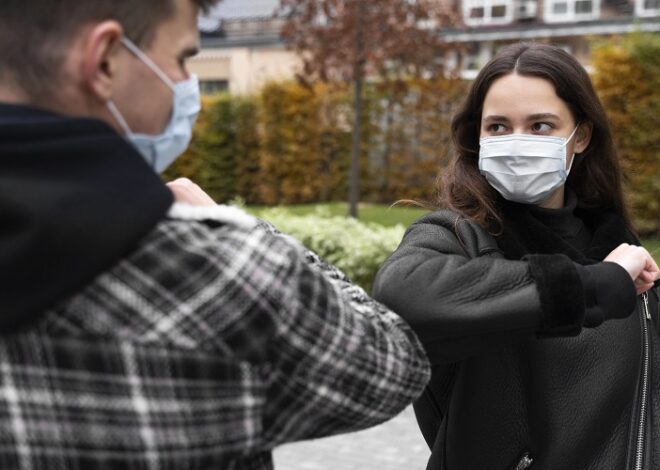The UK is witnessing a troubling spike in sexually transmitted diseases, and the cause is drawing attention—Young Britons Skipping Condoms. Across major cities like London, Manchester, and Birmingham, health officials are raising red flags. The once-dominant culture of safe sex among youth is slipping, and it’s directly fueling a noticeable UK STD surge.
Experts link this trend to shifting attitudes around casual dating, hookup culture, and misinformation about STIs. Despite educational efforts, many young people believe STDs are either rare or easily treatable, reducing the urgency around condom use. Unfortunately, this misconception is contributing to rising cases of chlamydia, gonorrhoea, syphilis, and HIV, especially in densely populated urban zones.
London: At the Heart of the STD Crisis
London has become ground zero for the UK’s STD epidemic. NHS data reveals an uptick in new STI diagnoses, with the capital reporting some of the highest numbers in the country. Young Britons in London, especially those aged 16 to 24, are engaging in more unprotected sex, often meeting partners via dating apps.
Many cite spontaneity, trust, or a partner’s appearance as reasons to forego condoms. However, public health experts warn that visual cues aren’t protection. Additionally, access to sexual health clinics in London has been under pressure, with long wait times for testing and treatment—further compounding the crisis.
Manchester: Casual Culture and Condom Fatigue
In Manchester, the rise of a carefree hookup culture has played a significant role in the spread of infections. Skipping condoms is becoming normalized among university students and club-goers, many of whom feel “condom fatigue” from repeated safe-sex messaging. There’s a growing perception that condoms reduce pleasure, and this outweighs perceived health risks.
Recent surveys among Manchester youth indicate that while awareness of STDs exists, urgency doesn’t. Many young people assume a simple clinic visit will “fix” any infection. But antibiotic-resistant strains of gonorrhoea are on the rise, and the long-term consequences of untreated infections—like infertility—are being underestimated.
Birmingham: Education Gaps and Rising Infections
Birmingham is another UK city witnessing a worrying increase in STD cases, particularly among young Britons skipping condoms in both heterosexual and LGBTQ+ communities. The lack of comprehensive sex education in some schools has left gaps in understanding what safe sex truly means.
Health outreach programs in Birmingham report that many young adults believe oral sex or pulling out are safe alternatives. This misinformation directly fuels the UK STD surge, as protection is either inconsistent or entirely absent. Efforts are now being made to expand community education, especially in areas with high infection rates.
Leeds: Party Culture and Poor Condom Access
In Leeds, the party scene thrives—and so does risky sexual behavior. Young people enjoying nightlife often find themselves in spontaneous situations where condoms aren’t available or used. Bars and clubs rarely promote safe sex awareness, and few provide free condoms.
Local clinics report that most STD diagnoses in Leeds are among those under 25, and many cases go unreported or untreated. Factors like alcohol, drugs, and peer pressure can lead to casual sex without condoms, putting both individuals and their wider communities at risk.
Glasgow: A Silent STD Spike Among Youth
In Glasgow, the STD crisis is more silent—but just as severe. Young Britons here are quietly fueling the UK STD surge by engaging in risky behavior, often without realizing the implications. STI testing rates are low, largely due to stigma and limited access to youth-friendly clinics.
A cultural reluctance to discuss sex openly still exists in parts of Glasgow, making conversations around condom use rare. This silence has dangerous effects. Without regular testing or open dialogue, infections spread unchecked. More initiatives are now targeting Glasgow’s youth through social media campaigns and peer education.
Liverpool: The Impact of Online Dating
Liverpool’s young adults are deeply immersed in the world of online dating, where fast matches often lead to fast hookups—and unfortunately, skipping condoms. Many users on apps like Tinder, Grindr, and Hinge report not discussing protection at all before sex.
This digital age of dating has changed the way relationships begin, making it harder to encourage responsible sexual health conversations. In Liverpool, rising gonorrhoea and syphilis cases reflect the consequences of this shift. Health experts are urging app companies to incorporate safe sex prompts into user interactions.
Bristol: LGBTQ+ Communities and Protection Gaps
Bristol has a large and active LGBTQ+ community, yet rising STD rates here show that condom use is inconsistent—particularly among young Britons. While PrEP has reduced HIV transmission among gay and bisexual men, many now skip condoms entirely, overlooking other STDs like chlamydia and syphilis.
Public health efforts in Bristol are trying to reshape this narrative. The message now focuses on comprehensive protection, encouraging condoms alongside PrEP to ensure broader safety. Clinics are expanding outreach to educate LGBTQ+ youth on all facets of sexual health.
Sheffield: STI Testing Is Low Among Students
Sheffield’s university population plays a significant role in local STD rates. Despite being highly educated, many students don’t prioritize regular STD testing and often skip condoms during casual sex. Shame, laziness, or a false sense of safety from being in a university “bubble” contribute to this risky trend.
Student health services report a jump in STI diagnoses following holidays or fresher’s week events. Although free condoms are available in many student unions, their uptake is surprisingly low. Encouraging peer-led awareness programs has shown promise in addressing the UK STD surge in Sheffield.
Newcastle: Normalizing Unsafe Sex
In Newcastle, there’s an alarming normalization of unsafe sex. Conversations with local youth reveal that condoms are seen as outdated or only necessary with new partners. But in a city where hookups are common, this attitude is causing STDs to spread rapidly.
Public campaigns have started promoting condom use through humor and real-life stories. But changing attitudes is challenging. Health experts warn that the longer this behavior continues, the more entrenched it becomes—placing entire communities at risk of long-term health consequences.
Cardiff: Public Health Under Pressure
Cardiff is seeing its sexual health services overwhelmed by increased STD testing demands—yet still not enough people are getting tested. As more young Britons skip condoms, especially in college environments, Cardiff clinics are reporting resource strains.
Sexual health advocates are calling for more government funding to meet demand. They’re also emphasizing early education, urging schools to teach about the dangers of the UK STD surge and the importance of protection. For Cardiff’s youth, easy access and clear communication remain essential tools in combating the crisis.
The Role of Technology and Dating Apps
Dating apps have revolutionized connection—but they’ve also contributed to the rise in unprotected casual sex. The speed of matches and prevalence of short-term flings make condoms seem like an afterthought. This digital landscape lacks prompts for health responsibility, pushing Young Britons to skip condoms.
To counteract this, public health agencies are now partnering with dating platforms to integrate features like reminders for testing or safe sex education. These small interventions could help reshape user behavior and curb the ongoing UK STD surge.
Solutions: How to Reverse the Trend
Cities must take a multi-pronged approach to reduce STD rates. This includes:
- Providing free condoms in nightlife venues, clinics, and colleges.
- Offering mobile STI testing units for easier access.
- Launching relatable, youth-focused social campaigns.
- Integrating safe sex reminders on dating platforms.
- Expanding sex education beyond biology—into real-world relationship dynamics.
Personal responsibility also plays a key role. Young Britons must be empowered to take charge of their sexual health, starting with consistent condom use and regular testing. Parents, educators, and peers all have a part in making sexual health a priority, not a taboo.
Conclusion: It’s Time to Reprioritize Protection
The STD Surge In The UK is no accident—it’s the result of gradual changes in attitudes, education, and behavior. From London to Cardiff, young Britons are skipping condoms at alarming rates, creating a public health crisis that could worsen without immediate intervention.
But there’s hope. With honest conversations, better access to protection, and stronger educational efforts, this trend can be reversed. Safe sex isn’t just old advice—it’s vital. And the sooner young Britons embrace it, the healthier the UK’s future will be.



